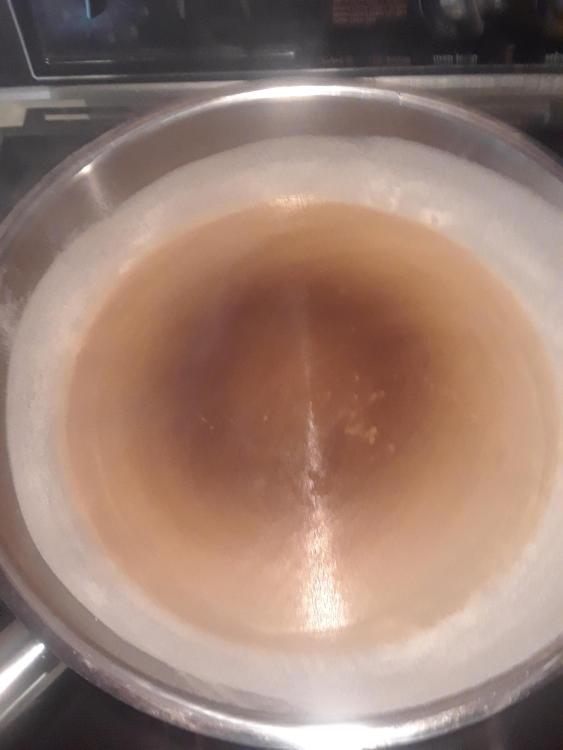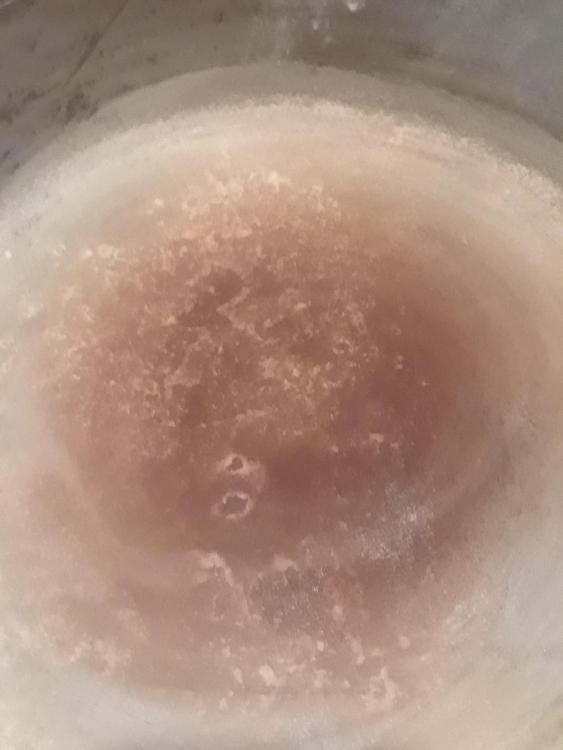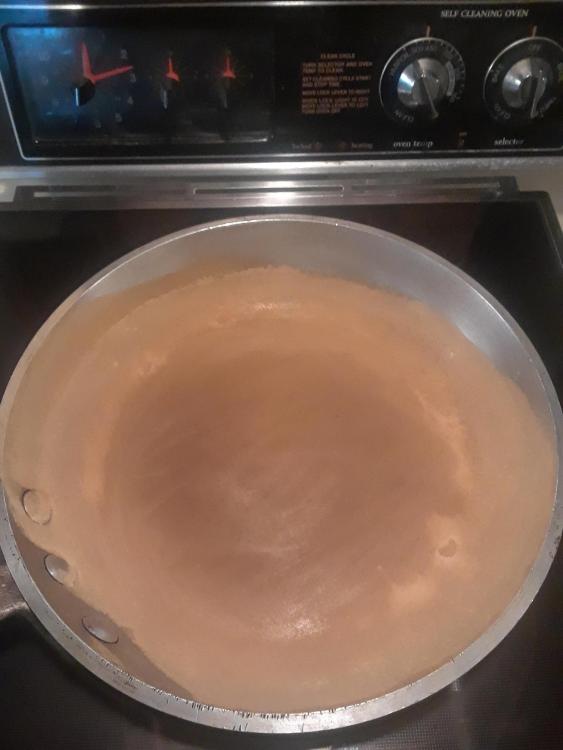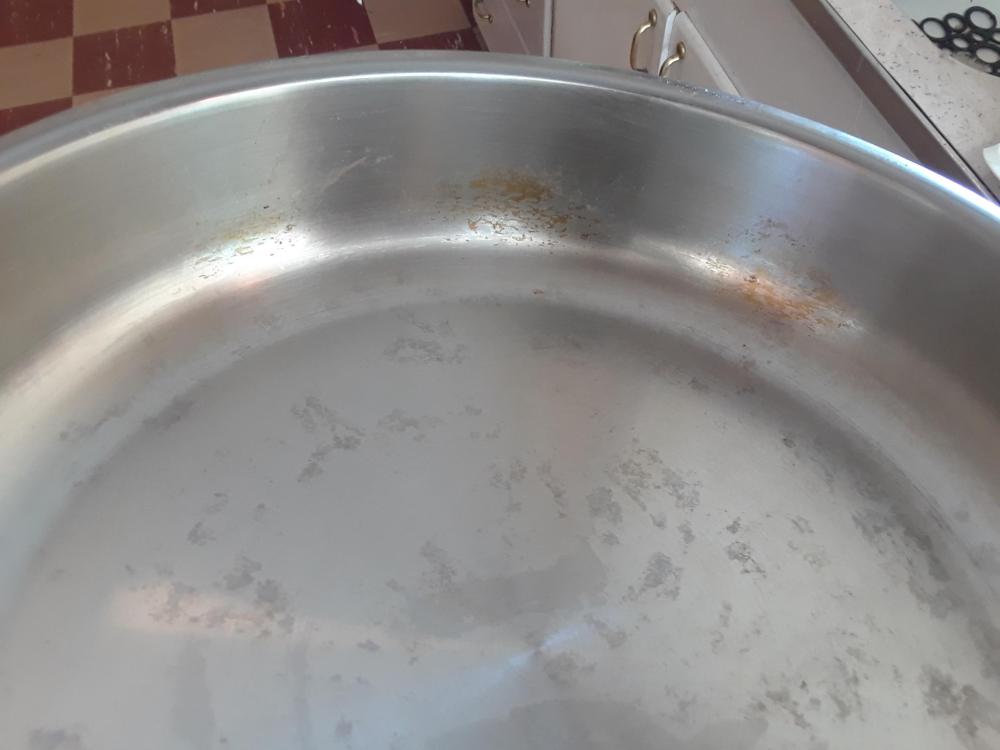-
Posts
453 -
Joined
-
Last visited
Content Type
Profiles
Forums
Store
Help Articles
Everything posted by Laurentius
-

Transition from PNG fired burners to Induction heating
Laurentius replied to a topic in Kitchen Consumer
I read the advert, and I can see why you might conclude that. I would take that with a grain of salt, at least until I saw the unit running through a watt meter. I'm also a bit skeptical about the "extended range" aspect. The physics of magnetic induction fields is that their intensity drops very, very fast, as a function of the inverse of the square root. I think truly emulating gas might require a lot more power than 240 single phase. -

Transition from PNG fired burners to Induction heating
Laurentius replied to a topic in Kitchen Consumer
Amen to this. If you really want to shrink your carbon footprint, stop buying new, elective stuff. Induction appliances are but one overtouted "responsible" example. -

Transition from PNG fired burners to Induction heating
Laurentius replied to a topic in Kitchen Consumer
Can you please explain this? The 120v Mirage Pro cycles in all settings, but not using full power. My understanding is that is what the "G4" engines are supposed to do. -

Transition from PNG fired burners to Induction heating
Laurentius replied to a topic in Kitchen Consumer
You should search out the British study addressing efficiency and cost recoupment of switching to induction for small restaurants. If I recall correctly, the conclusion was it would take 14 years to recoup costs of the switch. -

Transition from PNG fired burners to Induction heating
Laurentius replied to a topic in Kitchen Consumer
Sorry, I meant Power Setting. I other words, do all activated coils at Power Setting X draw the same wattage? -

Transition from PNG fired burners to Induction heating
Laurentius replied to a topic in Kitchen Consumer
How granular are the power settings? I.e., how many power settings? And here's an interesting question: Since the coils are pixelated, and activate more or fewer based on pan size, is Temp Setting X the same under a small milk pan as it is under a large water bath canner? -

Transition from PNG fired burners to Induction heating
Laurentius replied to a topic in Kitchen Consumer
Sorry, yup. Many are sub-Benjamin (<$100), and really good ones can be had for $500 or less. They're useful for picnics, dorms. buffet, classes, catering, and some travel. Frankly, if I could be persuaded to give up gas--extremely unlikely--I'd rather spend $1k on two Vollrath Mirage Pros over a new $$$ range. Or two of a similar 220/240 model. -

Transition from PNG fired burners to Induction heating
Laurentius replied to a topic in Kitchen Consumer
Have you considered buying PIC to use alongside your gas jobs so you can compare? -

Transition from PNG fired burners to Induction heating
Laurentius replied to a topic in Kitchen Consumer
While I applaud the symbolism of switching to induction, it's just that, IMO. btbyrd has covered why the mode isn't all that. I'll add that there is little solid evidence that induction is more efficient. In terms of what happens inside the appliance, it is. But when the generation and infrastructure are considered, it's possible there's no improvement. If the environmental costs are important, things like more electrical infrastructure, line losses, waste streams, and new appliances must be counted against keeping what we have. And how is your electricity generated to begin with? And what of your oven? As far as improving your efficiency goes, there's not much you can do. I suppose you can always cook in covered, insulated cookware, and avoid using the oven. A clean kitchen... If you want a glass cooktop, they existed before induction. Likewise closed burners. You could even cook entirely in a microwave. But as with all these things, is it symbolically important enough to you? -
That's unfortunate. This isn't a neener, but if something like the Smoking Gun isn't a viable option, liquid smoke isn't completely worthless. You can do a credible Kailua pork without an earth oven...
-
Never let it be said they don't know how to cut a fat hog.
-
The thing is, unless you're looking over their shoulder, you can't be sure. While I generally agree with you about excess heat, I do sharpen on belts. Worn belts, light touch, a water dip, and feeling with an ungloved hand work well for me...
-

Induction hob/cooktop, and the best cookware for it
Laurentius replied to a topic in Kitchen Consumer
Yes, that's true, if all other variables are equal. I assume you're referring to the 1.9mm copper core in Falk Coer. I wasn't comparing Voter's overall heat capacity. But as with Proline, to compare apples you'd have to run your calcs using the total volume of conductive material, i.e., including that in the walls. So It's misleading to only consider 8mm vs. 3.7mm. What I learned is that there is more heat delivered to proteins in a Proline than a Profi of the same size when the heat is killed--the bigger core draws heat in. Well, if "better" means slower response (i.e., finishing and holding in a pan off the heat), or affordability, then I might agree. But I would disagree that having conductive sidewalls is an undesirable pan feature. Fissler originally called their thick disk constructions 'brautpfanne', but I discovered conductive, curved sidewall pans are actually more useful to me with sausages. Same with steaks and cuts in very hot saute shapes. -
I would love visit there.
-
Wow, thanks for sharing these photos. Do the Yao eschew modern things or electricity?
-
Not really. When they're out of your sight, they get put against a platen or wheel. But I wasn't talking about the artifacts that one can only see under microscopy.
-

Induction hob/cooktop, and the best cookware for it
Laurentius replied to a topic in Kitchen Consumer
Cooking. There are many cooking applications where heated sidewalls are beneficial, and you're not getting any of that with Fissler Profi. And since, e.g., the 28 cm Proline holds more heat than does the 28cm Profi, there's less heat put into the food. I've tested this with searing food and measured it in controlled water baths. I evaluated Coer for Falk. It is true that the line is substantially more responsive than the Profi, but then virtually everything is. But Coer is less responsive than Falk's bimetal layup. Coer exists only to give Falk a horse in the induction race. And Coer can be disappointingly uneven on induction, pretty much like everything else. Have you had pitting issues on the bottoms of your Coer pieces? I'm attaching 3 scorchprint photos I took during induction evenness testing. Because the comparators were Fissler Profi, a 3.2mm Dehillerin saute and a 6mm straightgauge aluminum pan, I used the Panasonic Met-All PIC, which "works" with all 3. As you can see, none were far perfectly even. But you can also see that the Fissler Profi was the least even of the bunch. There's also Ring of Fire to consider, less so on induction than gas. It's the flip side of the radical temperature discontinuity in disk-base pans. You can, e.g., find that you scald milk at the wall/floor junction in these, whereas the smoother transition with other constructions doesn't do that. The fourth photo show this in a Profi. -
.. and you'd likely still need to weigh down a sheet of mesh. Every crock of kraut or bin of grape must I've fermented gives off enough CO2 to lift any light covering.
-
Why not just use a weight?
-
I think if you don't have a deck, and/or either code or CC&Rs prohibit all smokers, you're stuck, sorry. In a condo situation, all it takes is one neighbor or passerby to smell smoke, and you're hosed. Could you use a Little Chief? I've had some excellent smoked meats out of these low-tech electric units.
-
Yes. 143F is kippering temperature.
-
Is a real smoker outside not a possibility for you? If you're only after the smoke flavor, and you need to stay inside, you might like saving $900 and buying the Breville Smoking Gun. https://www.amazon.com/Breville-BSM600SILUSC-Smoking-Smoker-Silver/dp/B072RCDQJS
-

Induction hob/cooktop, and the best cookware for it
Laurentius replied to a topic in Kitchen Consumer
This isn't measuring conductivity or thermal bond, It's measuring evenness. The 28cm Proline is effectively a 36cm pan by virtue of it being fully clad. The 28cm Fissler's chamfered core is <27cm. And the thinner Proline 28cm actually holds more heat than does the Fissler 28 for the same reason. I know because I've measured, both empty and in cooking. If you read Franz's ratings, you saw he rated both pans 5/5 for evenness, and that was on the flawed basis of measuring when the pan center hit an arbitrary point of 350F. If you preheat both pans to thermal equilibrium, there's not much Delta T at the 27cm ring. -

A Volcanologist and a Chemist Walk Into a Coffee Bar...
Laurentius replied to a topic in Coffee & Tea
I tried this technique today. Marginally reduced static cling, and no change in flavor. I just brush out that which clings into the filter.






